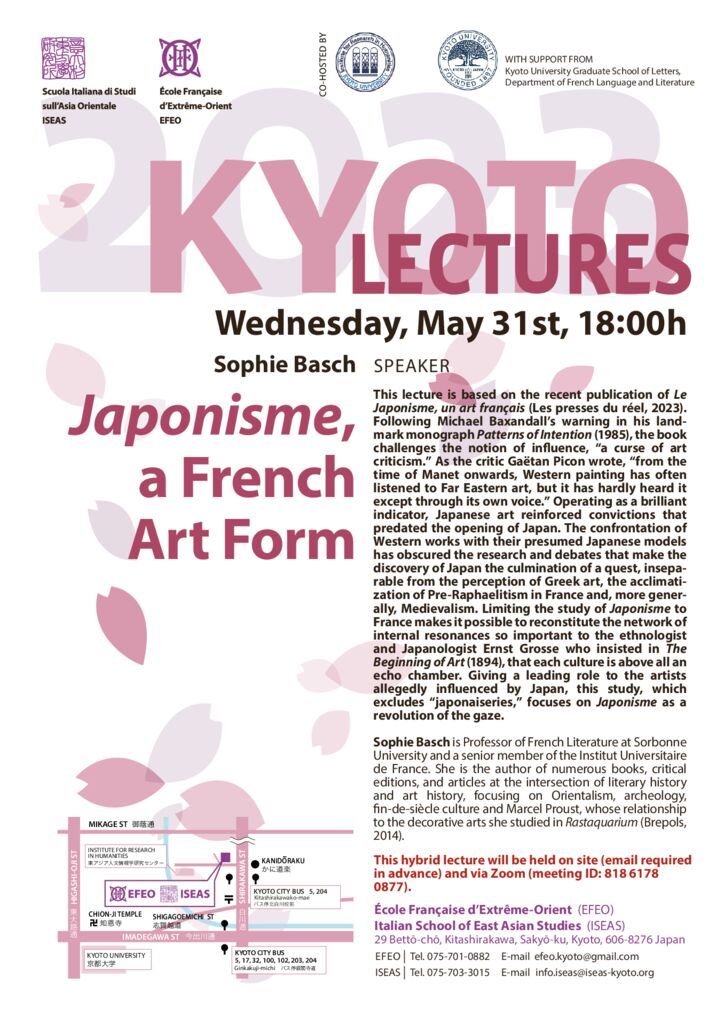This lecture is based on the recent publication of Le Japonisme, un art français (Les presses du réel, 2023). Following Michael Baxandall’s warning in his landmark monograph Patterns of Intention (1985), the book challenges the notion of inuence, “a curse of art criticism.” As the critic Gaëtan Picon wrote, “from the time of Manet onwards, Western painting has often listened to Far Eastern art, but it has hardly heard it except through its own voice.” Operating as a brilliant indicator, Japanese art reinforced convictions that predated the opening of Japan. The confrontation of Western works with their presumed Japanese models has obscured the research and debates that make the discovery of Japan the culmination of a quest, inseparable from the perception of Greek art, the acclimatization of Pre-Raphaelitism in France and, more generally, Medievalism. Limiting the study of Japonisme to France makes it possible to reconstitute the network of internal resonances so important to the ethnologist and Japanologist Ernst Grosse who insisted in The Beginning of Art (1894), that each culture is above all an echo chamber. Giving a leading role to the artists allegedly inuenced by Japan, this study, which excludes “japonaiseries,” focuses on Japonisme as a revolution of the gaze.
Sophie Basch is Professor of French Literature at Sorbonne University and a senior member of the Institut Universitaire de France. She is the author of numerous books, critical editions, and articles at the intersection of literary history and art history, focusing on Orientalism, archeology, n-de-siècle culture and Marcel Proust, whose relationship to the decorative arts she studied in Rastaquarium (Brepols, 2014).
This hybrid lecture will be held on site (email required in advance) and via Zoom (meeting ID: 818 6178 0877).
The meeting link will remain posted on the ISEAS website top page from may 29.
